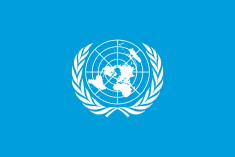Miami | Reuters — Haitians are experiencing catastrophic hunger because of gangsters blockading a major fuel terminal, U.N. officials said on Friday, with more than four million facing acute food insecurity.
A coalition of gangs has prevented the distribution of diesel and gasoline for over a month to protest a plan to cut fuel subsidies. Most transport is halted, with looting and gang shootouts becoming increasingly common.
“We have for the first time a famine present in Haiti,” Ulrika Richardson, resident and humanitarian co-ordinator for the U.N. system in Haiti, said in a telephone interview.
Read Also

U.S. grains: Chicago grain prices fall amid profit-taking and dollar rebound
Chicago | Reuters – Chicago corn, soybean and wheat futures fell on Friday, pressured by profit-taking and a rebound in…
“The gang violence has cut off the capital from the food-producing south, and that means that we have now an increase in food insecurity.”
A U.N. spokesperson later clarified that Richardson should have described the situation as catastrophic hunger rather than famine.
Richardson said other countries need to do more to support Haiti, as the Caribbean country’s humanitarian response plan for this year has received less than 30 per cent of the required funding.
“While we address the current symptoms of the multiple crises that Haitians are facing… the security and the fuel crisis — we also have to make sure that we invest in the longer-term root causes, such as impunity, such as corruption,” said Richardson, the U.N.’s most senior humanitarian official in Haiti.
Some 19,200 people in Haiti’s Cite Soleil are suffering famine conditions, according to an analysis by U.N. agencies and aid groups on Friday. A famine is declared when at least 20 per cent of the households in a region are suffering famine conditions.
The analysis said that in total 4.7 million people — nearly half of Haiti’s population — are experiencing high levels of acute food insecurity.
The situation was “close to breaking point,” Jean-Martin Bauer, World Food Program country director in Haiti, told reporters earlier.
A U.N. report released on Friday said children as young as 10 and elderly women have been subjected to sexual violence, including collective rapes for hours in front of their parents or children.
“Gangs use sexual violence to instil fear, and alarmingly the number of cases increases by the day as the humanitarian and human rights crisis in Haiti deepens,” said Nada Al-Nashif, the acting human rights chief.
Prime Minister Ariel Henry last week asked for military assistance from abroad to confront the gangs, and U.N. Secretary-General Antonio Guterres has proposed “a rapid action force” to help Haiti’s police.
It is not immediately evident which countries would participate in such a force.
U.S. development agency USAID on Friday sent a disaster assistance response team to Haiti, the agency’s chief, Samantha Power, wrote on Twitter.
Such teams are dispatched in response to natural disasters and complex emergencies, and typically include infectious disease specialists, nutritionists, and logistics experts, according to USAID’s website.
The U.S. State Department has offered support for Haiti’s police and has sent a Coast Guard vessel to patrol the area.
The U.S. and Canada in the coming days will deliver armoured vehicles to the Haitian police that have been purchased by Haiti, U.S. assistant secretary of state Brian Nichols said in an interview with Haitian TV on Thursday.
— Reporting for Reuters by Brian Ellsworth in Miami and Paul Carrel; additional reporting by Michelle Nichols at the United Nations.















